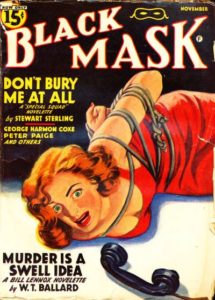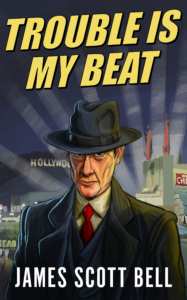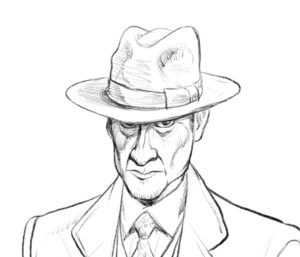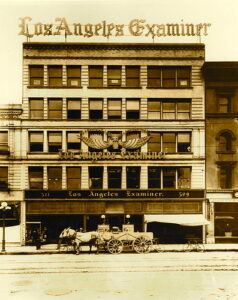by James Scott Bell
@jamesscottbell
 People want stories. I would argue people need stories. That’s how the great pulp writers made their living—providing fast-moving tales for readers who longed for escapism, especially during the Great Depression.
People want stories. I would argue people need stories. That’s how the great pulp writers made their living—providing fast-moving tales for readers who longed for escapism, especially during the Great Depression.
Pulp fiction, like jazz, is an American phenomenon. Pulp refers to the cheaper paper (wood pulp) that these magazines used to save money. The mags came out every month, stuffed with new stories for a voracious reading public. The golden age was between the World Wars. Dozens of magazines offered crime, detective, fantasy, action, sports, and Western fiction, with eye-catching and often lurid covers to tantalize the harried businessman as he walked by the newsstand.
To make a living in the pulps, which paid on average a penny a word, you had to be prolific. That meant several stories flying through the postal system, and when one came back rejected, slapped in another envelope and sent off to another editor.
The best of the pulpsters quickly figured out that a great series character was, in the words of Erle Stanley Gardner, the “pulp writer’s insurance policy.” When a character caught on, subsequent issues of the magazine could advertise “a new Doc Savage story” thus guaranteeing sales.
After trying out several series characters in Black Mask, Gardner hit on Perry Mason, who became not just his insurance policy but his lifetime annuity as well.
As you may know, I run my own personal pulp fiction “magazine.” It was here I developed a series character in classic pulp style—a troubleshooter for a Hollywood studio in 1940s Hollywood named William “Wild Bill” Armbrewster.
 Armbrewster solves problems for National-Consolidated Pictures. That means getting leading men out of the drunk tank … or a murder rap. It means keeping wolves away from starlets and dancers away from temptation. Once it even means helping Bette Davis out of a jam.
Armbrewster solves problems for National-Consolidated Pictures. That means getting leading men out of the drunk tank … or a murder rap. It means keeping wolves away from starlets and dancers away from temptation. Once it even means helping Bette Davis out of a jam.
His beat is trouble and his fists are ready.
He’s got some Sam Spade and Philip Marlowe in him, and a bit of Bill Lennox, the character created by W. T. Ballard for Black Mask. My collection of six Bill Armbrewster novelettes is up for pre-sale at the deal price of $2.99 (it goes up to $4.99 after launch week). You can snag your copy here. Outside the U.S., go to your Amazon store and search for: B09V1RLXDM
There will be a print version, too.
As an added feature, I’ve put together an extensive glossary of 1940s pulp slang. This will be a good education for the kids who want to read and understand classic crime fiction, and enjoy film noir to the full.
So how about a quiz? Here are a few terms from the glossary. How many can you translate? (Keep score, then see my answers in the comments section. No peeking!)
Adam and Eve on a Raft
Ameche
Bunk, The
Chicago overcoat
Clip joint
Educated puppies
Palooka
Pan
Roscoe
Sawbuck
T’aint funny, McGee
Thanks for letting me toot my own horn today. Enjoy the book. After all, entertainment is my beat.



